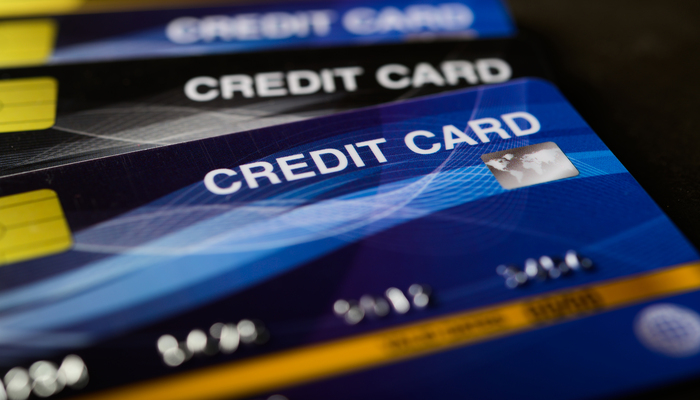Choosing the right credit card can significantly impact your financial health and lifestyle. With so many options available, it’s essential to understand the different features, benefits, and potential drawbacks of each card to make an informed decision.
Understand your financial goals
Before you start comparing credit cards, it’s important to understand your financial goals. Ask yourself why you want a credit card and how you plan to use it. Common goals include building credit, earning rewards, getting cashback on purchases, or financing a large expense. Your goals will help determine which type of credit card is best for you.
1. Building Credit
If your primary goal is to build or rebuild your credit, consider a secured credit card or a card designed for people with limited or no credit history. Secured credit cards require a security deposit, which typically serves as your credit limit. Responsible use of a secured card can help improve your credit score over time.
2. Earning Rewards
For those who want to earn rewards, look for cards that offer points, miles, or cashback on purchases. Travel rewards cards, cashback cards, and points cards all have different benefits. Choose one that aligns with your spending habits and the type of rewards you value most.
3. Financing a Large Expense
If you need to finance a large purchase, consider a credit card with a low interest rate or an introductory 0% APR offer on purchases. These cards can help you spread out the cost over time without incurring high interest charges.
Compare interest rates and fees
Interest rates and fees can significantly affect the overall cost of using a credit card. Here are some key factors to consider:
1. Annual Percentage Rate (APR)
The APR is the interest rate you’ll pay on any balances you carry from month to month. Cards with lower APRs are better if you plan to carry a balance. Some cards offer a 0% introductory APR for a certain period, which can be beneficial for large purchases or balance transfers.
2. Annual Fees
Some credit cards charge an annual fee, which can range from $25 to several hundred dollars. While cards with annual fees often offer more generous rewards and benefits, you should weigh these against the cost of the fee. If you don’t plan to use the card’s perks extensively, a no-annual-fee card might be a better option.
3. Other Fees
Be aware of other fees that may apply, such as balance transfer fees, cash advance fees, foreign transaction fees, and late payment fees. These fees can add up and impact the overall cost of using the card.
Evaluate rewards and benefits
Credit card rewards and benefits vary widely. Consider which rewards and perks are most valuable to you based on your spending habits and lifestyle.
1. Cashback Cards
Cashback cards offer a percentage of your spending back as cash rewards. Some cards offer a flat rate on all purchases, while others provide higher rates in specific categories such as groceries, gas, or dining. Choose a card that aligns with your spending patterns to maximize your cashback earnings.
2. Travel Rewards Cards
Travel rewards cards allow you to earn points or miles that can be redeemed for flights, hotel stays, and other travel-related expenses. Many travel cards offer additional perks such as free checked bags, priority boarding, and airport lounge access. If you travel frequently, a travel rewards card can provide significant value.
3. Points Cards
Points cards offer rewards points that can be redeemed for various options, including merchandise, gift cards, and statement credits. These cards often come with flexible redemption options, making them a good choice if you prefer versatility in your rewards.
4. Sign-Up Bonuses
Many credit cards offer sign-up bonuses if you spend a certain amount within the first few months of opening the account. These bonuses can provide a substantial boost to your rewards earnings, but make sure the spending requirement is achievable within your budget.
5. Additional Benefits
Look for cards that offer additional benefits such as purchase protection, extended warranties, travel insurance, and concierge services. These perks can add significant value to the card and enhance your overall experience.
Consider your spending habits
Your spending habits play a crucial role in choosing the right credit card. Evaluate how you spend money to identify the best card for your needs.
1. Everyday Spending
If you use your credit card for everyday expenses such as groceries, gas, and dining, look for a card that offers high rewards in these categories. Some cards offer rotating bonus categories that change quarterly, while others have fixed categories.
2. Travel and Entertainment
For those who frequently spend on travel and entertainment, a travel rewards card with perks such as airline miles, hotel points, and no foreign transaction fees is ideal. These cards often provide additional travel benefits that can enhance your trips.
3. Large Purchases
If you plan to use your credit card for large purchases, consider a card with a 0% introductory APR on purchases. This can help you pay off the expense over time without accruing interest.
Check your credit score
Your credit score is a critical factor in determining which credit cards you qualify for and the terms you’ll receive. Check your credit score before applying for a card to understand your credit standing. If your score is lower than you’d like, consider taking steps to improve it before applying for a new card.
Read the fine print
Before applying for a credit card, carefully read the terms and conditions. Pay attention to the interest rates, fees, rewards program rules, and any limitations or exclusions. Understanding the fine print can help you avoid surprises and make an informed decision.
Apply for the card
Once you’ve chosen the right credit card, you can apply online, by phone, or through the mail. Ensure you have all the necessary information, such as your Social Security number, employment details, and income. Be honest and accurate when completing the application to avoid any delays or issues.
Use your credit card responsibly
After receiving your credit card, it’s essential to use it responsibly to maintain good credit and maximize its benefits.
1. Pay Your Balance in Full
Paying your balance in full each month helps you avoid interest charges and maintain a good credit score. If you can’t pay the full balance, aim to pay more than the minimum to reduce your debt faster.
2. Monitor Your Spending
Keep track of your spending to ensure you stay within your budget. Many credit card issuers offer online tools and mobile apps to help you monitor your transactions and manage your account.
3. Avoid Maxing Out Your Card
Maxing out your credit card can negatively impact your credit score and increase your debt. Try to keep your credit utilization ratio below 30% of your credit limit.
4. Take Advantage of Rewards
Use your credit card for purchases that earn rewards, but avoid overspending just to earn points or cashback. Redeem your rewards regularly to maximize their value.
Review your credit card periodically
Your financial situation and spending habits may change over time, so it’s important to review your credit card periodically to ensure it still meets your needs. Consider upgrading to a card with better rewards or lower fees if your current card is no longer the best fit.
Choosing the right credit card involves careful consideration of your financial goals, spending habits, and the card’s features and benefits. By understanding these factors and following the tips outlined in this guide, you can find a credit card that enhances your financial well-being and helps you achieve your goals. Remember to use your credit card responsibly to maintain good credit and maximize its advantages.



